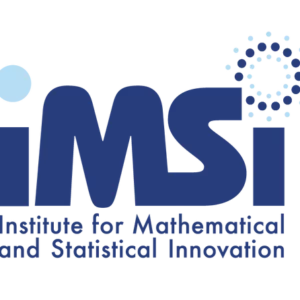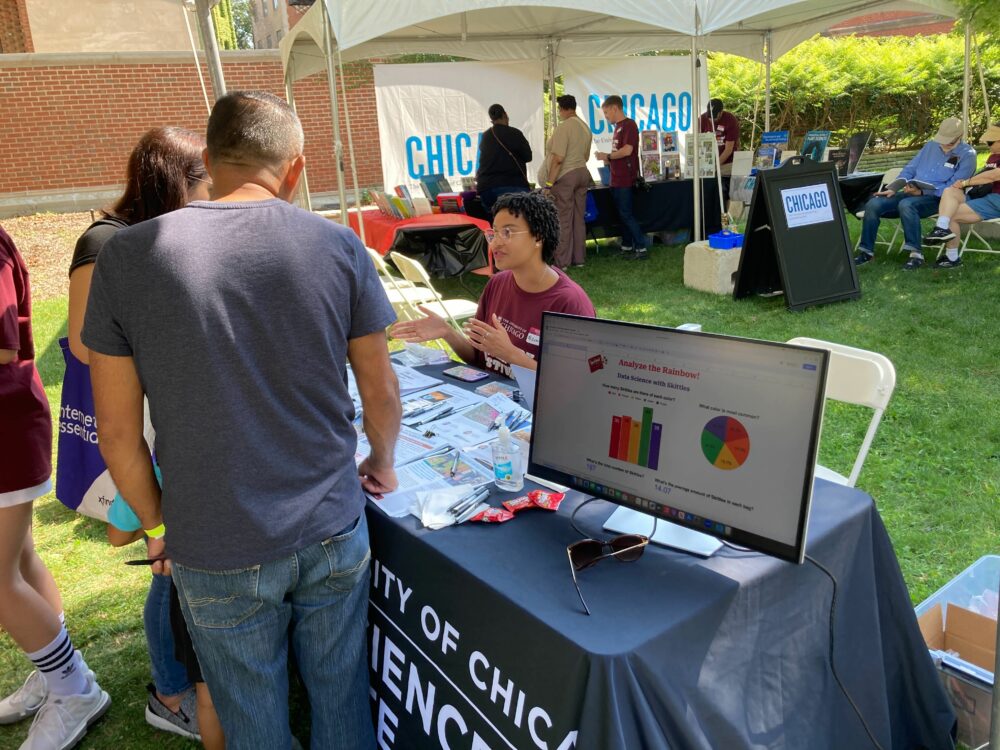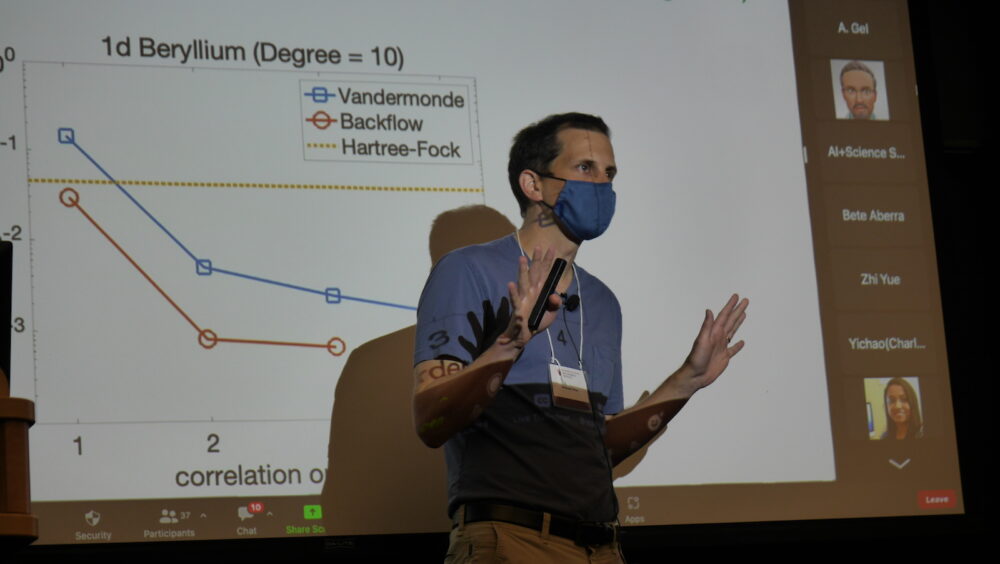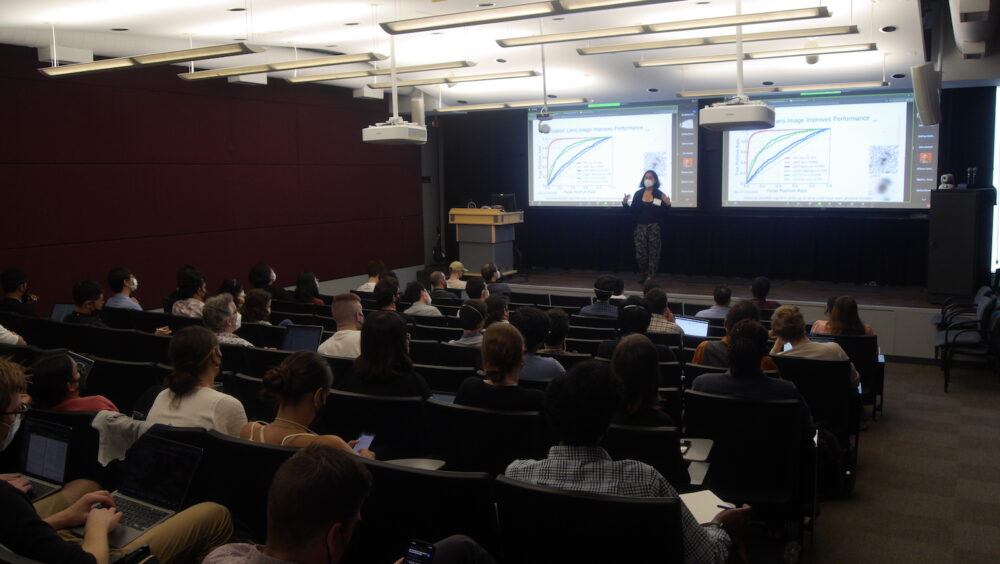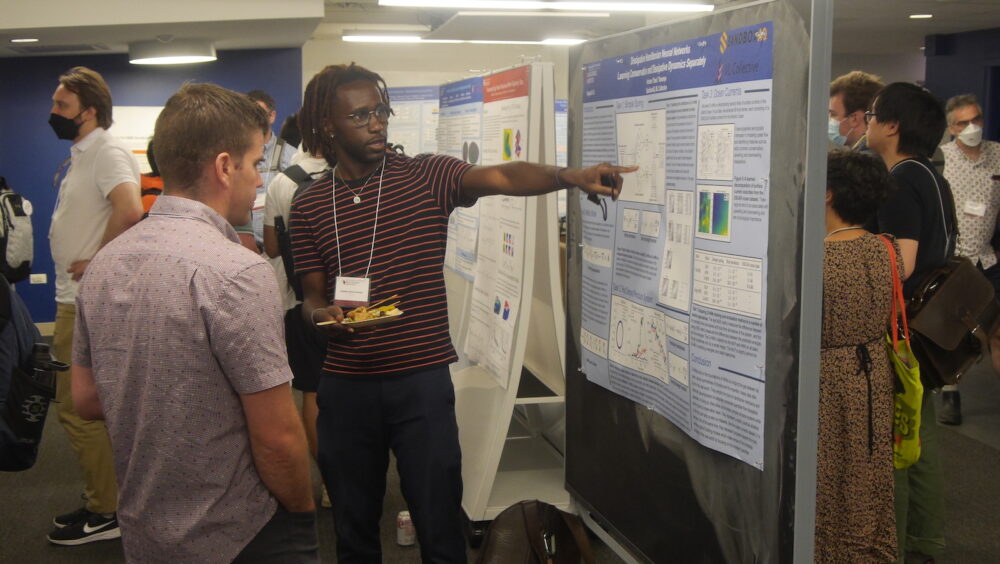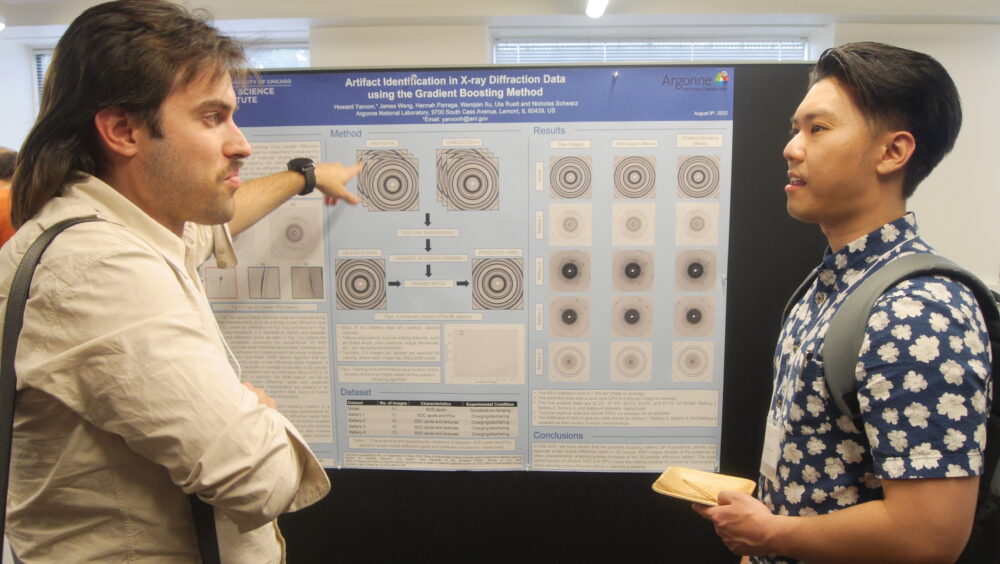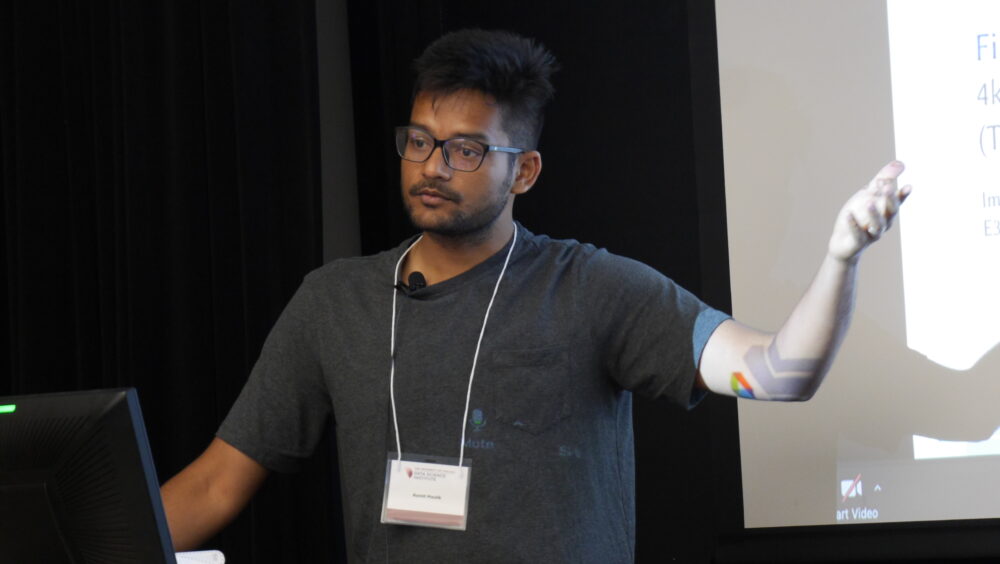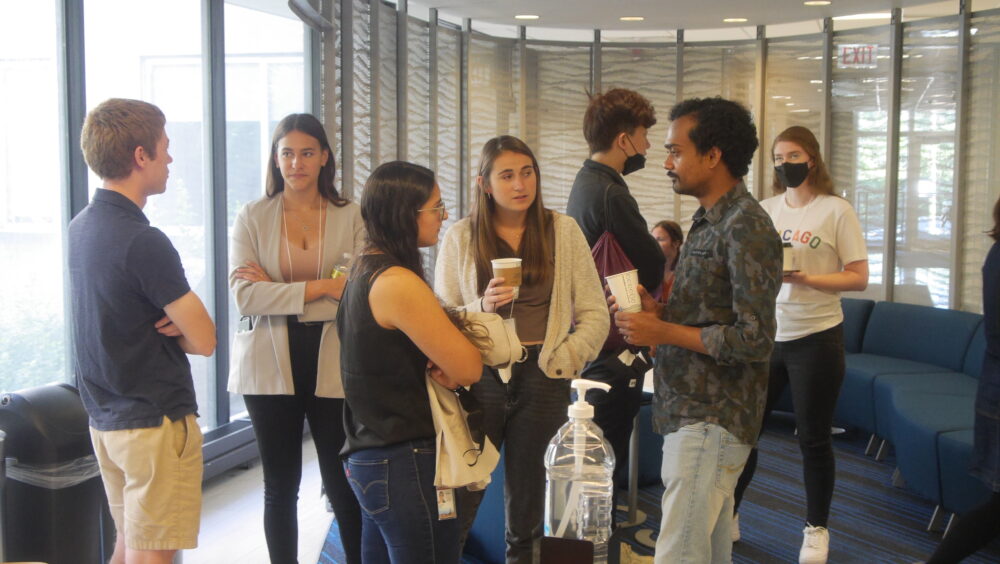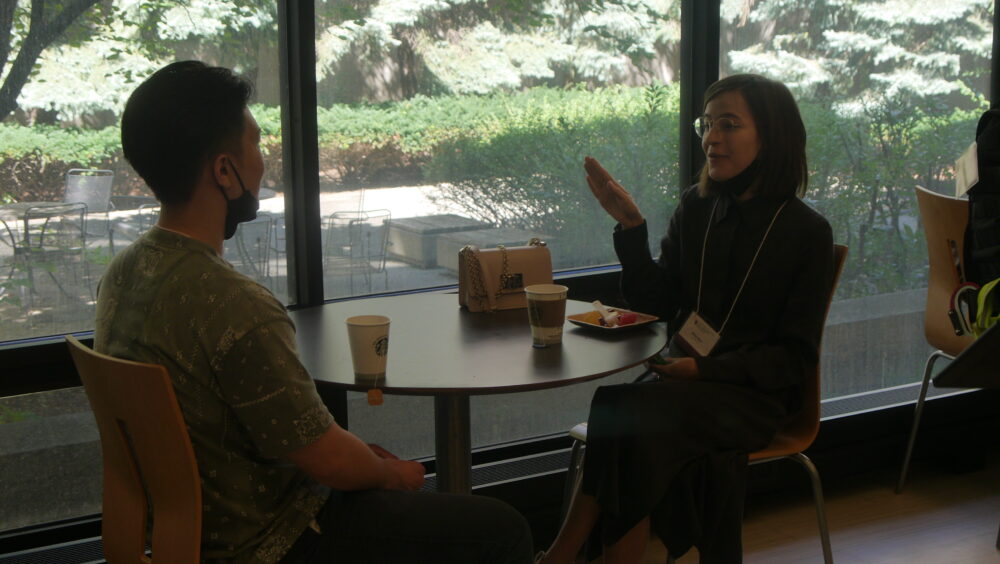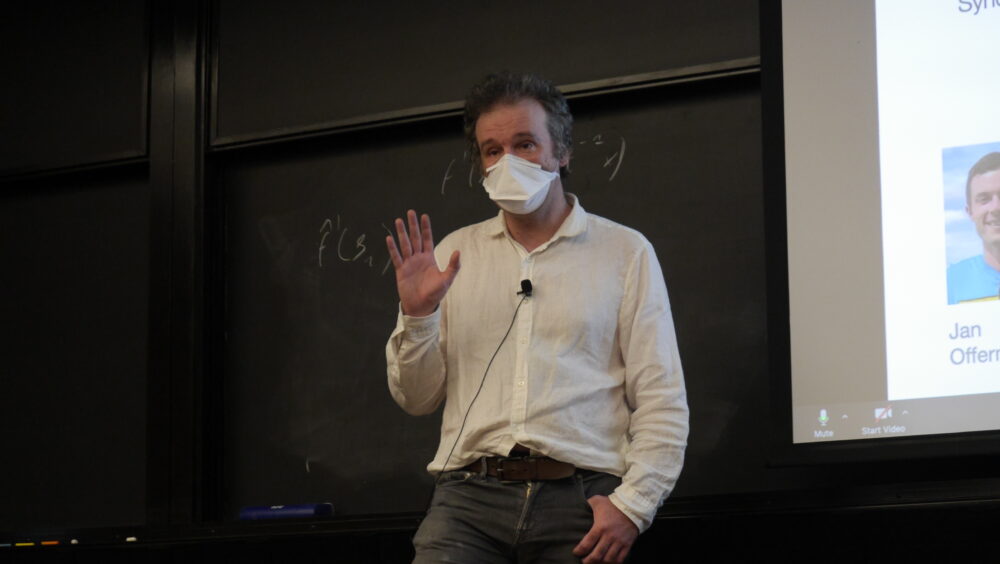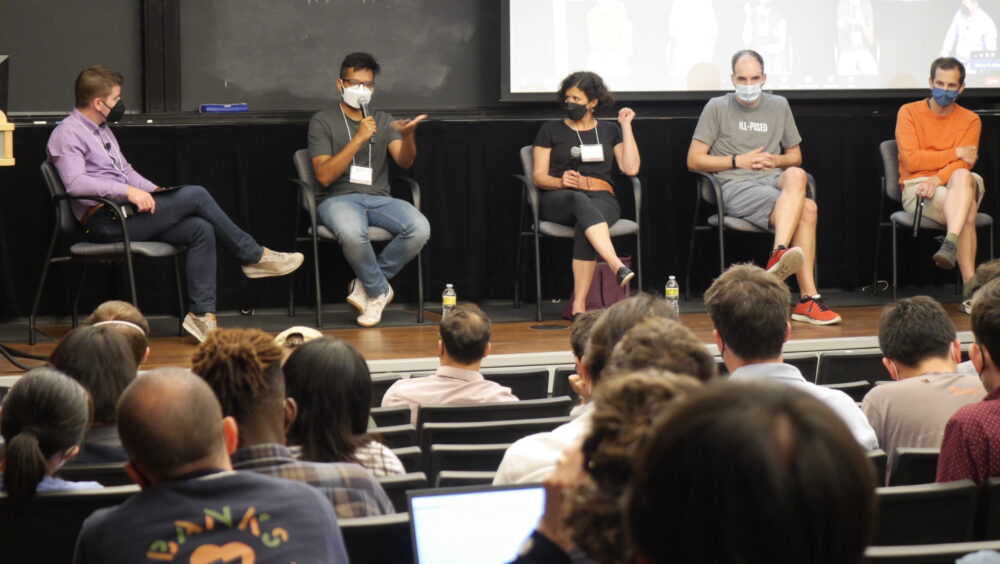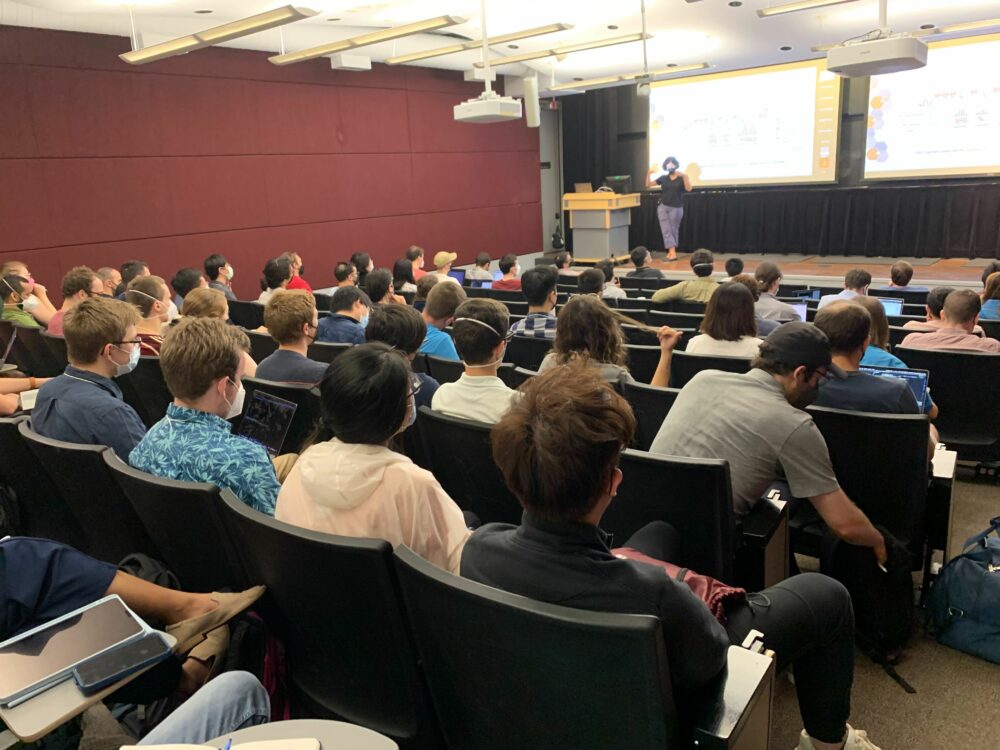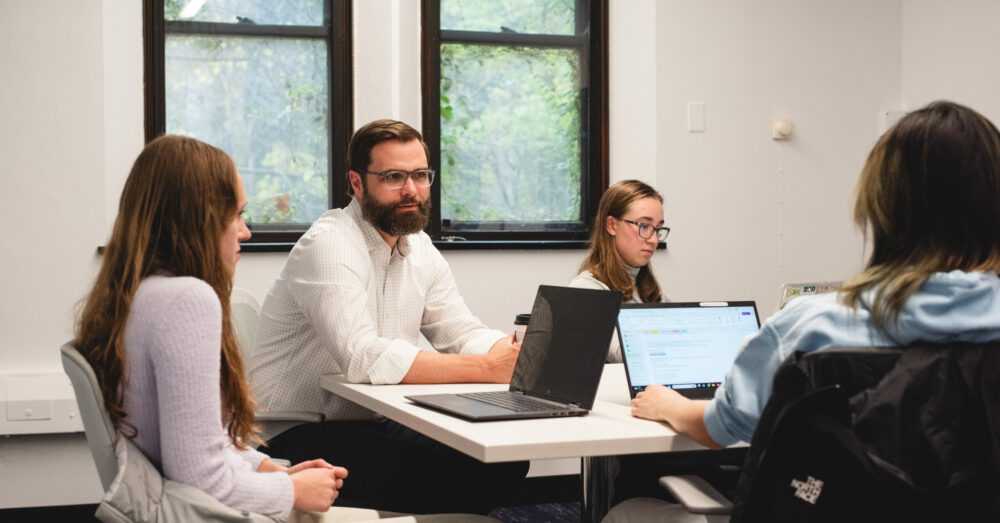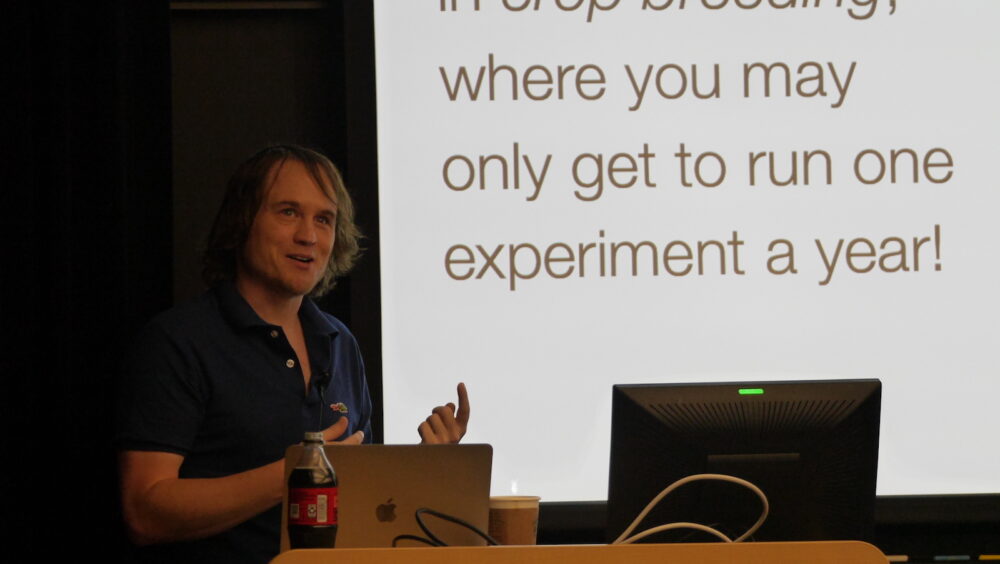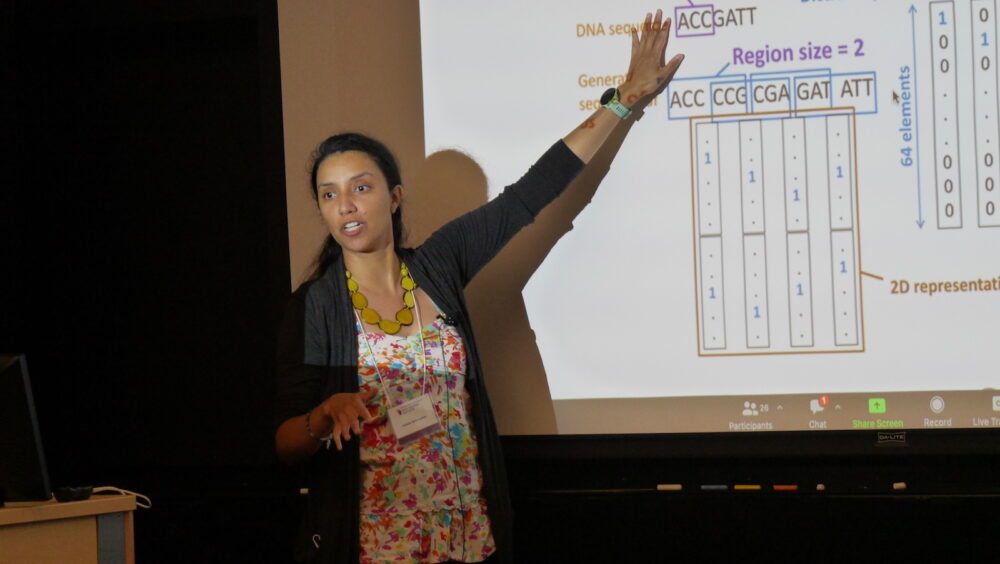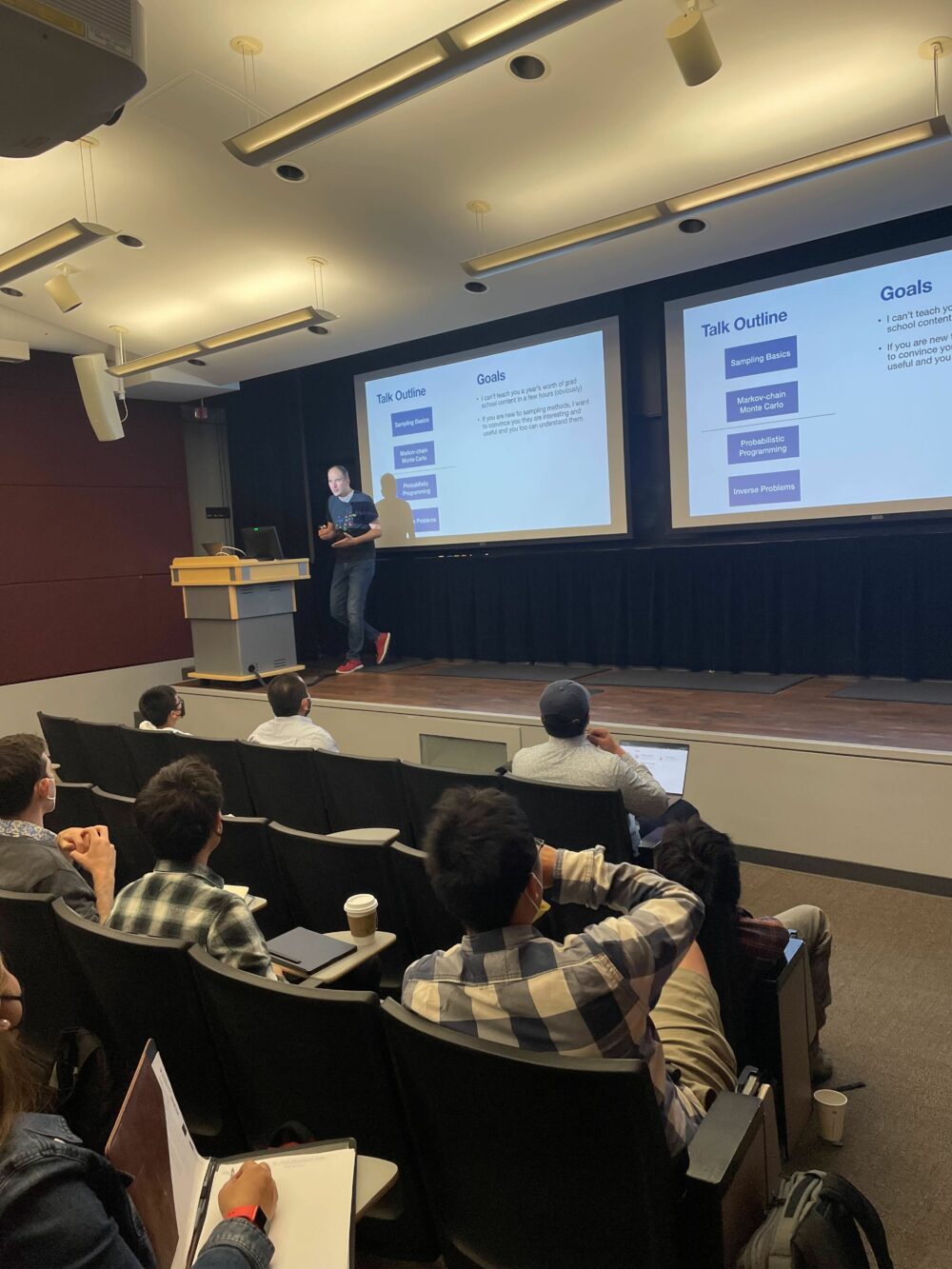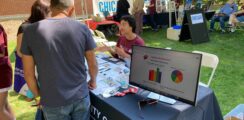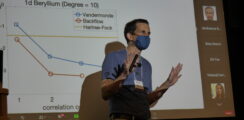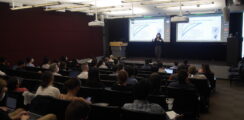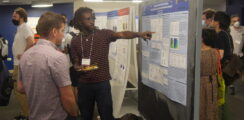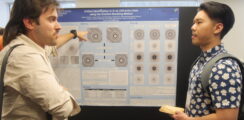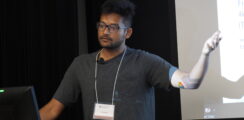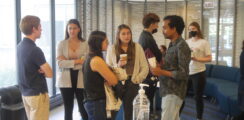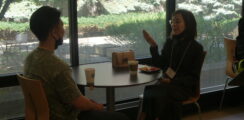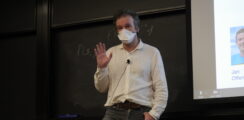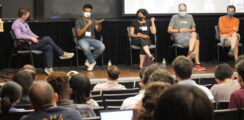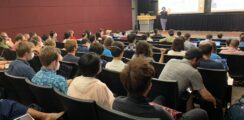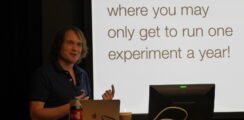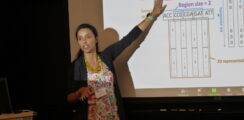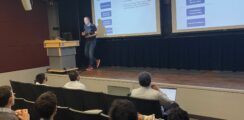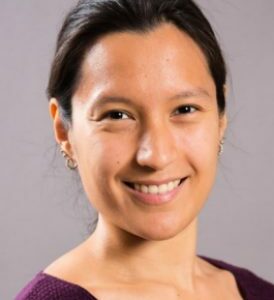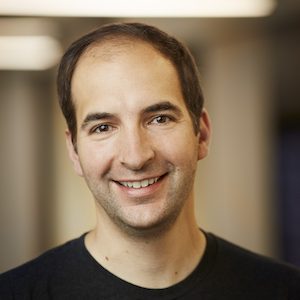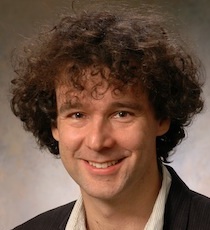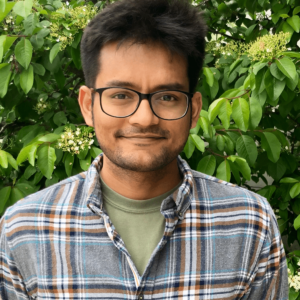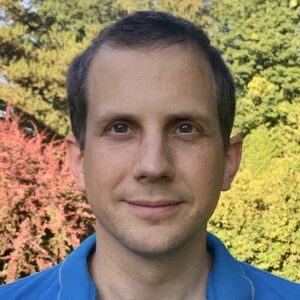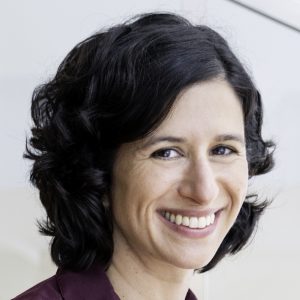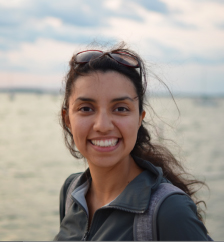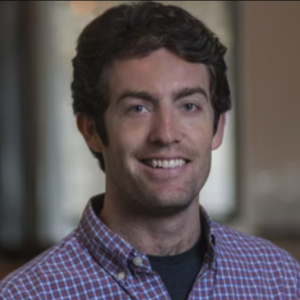2022 AI + Science Summer School
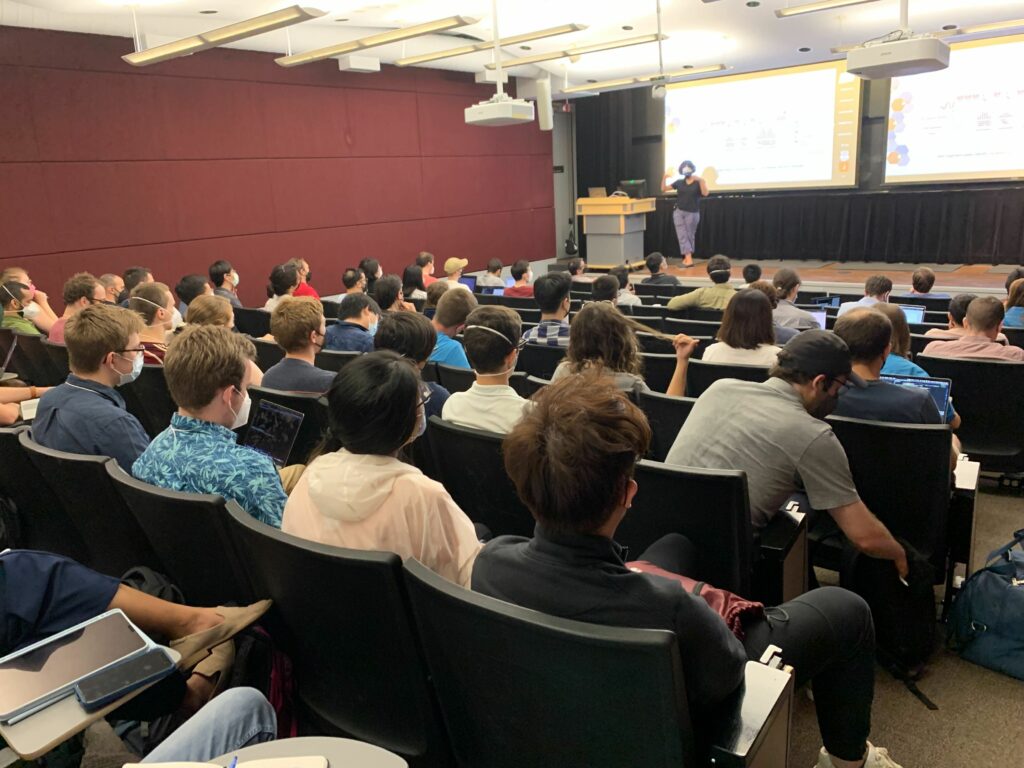
The first AI + Science Summer School was a huge success! Join the DSI newsletter for announcements about next year’s program.
Modern artificial intelligence and machine learning will fundamentally change scientific discovery. We are just beginning to understand the possibilities presented by an era of extraordinarily powerful computers coupled with advanced instruments capable of collecting enormous volumes of high-resolution experimental data. Off-the-shelf machine learning tools cannot fully extract the knowledge contained in these datasets, let alone generate new theories and propose future experiments.
The AI + Science Summer School was an August 2022 event jointly hosted by the Data Science Institute (DSI) and Institute for Mathematical and Statistical Innovation (IMSI) at the University of Chicago. It focused on four core themes at the heart of this emerging paradigm of scientific discovery: AI uncovering new laws of nature, AI guiding scientific measurement, physics-informed machine learning, and scientific discovery advancing AI frontiers.
Speakers and talks at the summer school included (click link to watch video):
- Christoph Ortner – “Atomic Cluster Expansion – A Framework For Modeling Equivariant Properties Of Atoms And Molecules“
- Camille Avestruz – “Machine Learning in Astrophysics/Cosmology“
- Romit Maulik – “Learning Nonlinear Dynamical Systems Using Scientific Machine Learning“
- Risi Kondor – “Equivariant Neural Networks For Physics And Chemistry“
- Panel (Eric Jonas, Romit Maulik, Christoph Ortner, Samanthan Riesenfeld; moderated by David Miller) – “Moving beyond the ML Hype – Research Frontiers in AI and Science“
- Samantha Riesenfeld – “Mathematical Models for Single-Cell Genomic Data: Challenges and Opportunities” (note: due to technical difficulties, video starts halfway through talk)
- Miles Stoudenmire – “Tensor Networks in Machine Learning Architectures“
- Roman Garnett – “Bayesian Active Learning For Experimental Design“
- Claudia Solis-Lemus – “The Challenges Of Machine Learning Models In Omics Data“
- Eric Jonas – “Sampling Methods For High-Dimensional Distributions“
The goal of the program is to introduce a new generation of diverse interdisciplinary graduate students and researchers to the emerging field of AI + Science. We also hope this program can build community and spur new research directions focused on AI-enabled scientific discovery across the physical and biological sciences.
The organizing committee for the AI + Science Summer School is Yuxin Chen, Aaron Dinner, Ian Foster, Eric Jonas, Yuehaw Khoo, Risi Kondor, David Miller, Brian Nord, Surinarayanan Vaikuntanathan, and Rebecca Willett.
Partners
Speakers
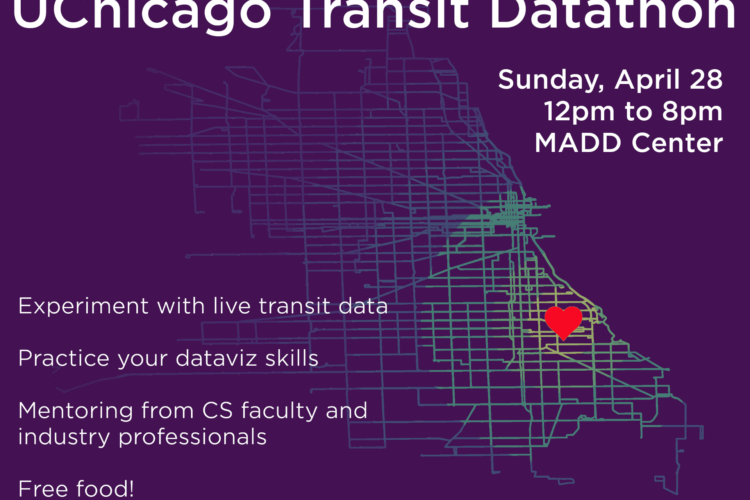
First Annual UChicago Transit Datathon

Navigating the Data Science Job Market: Insights and Opportunities
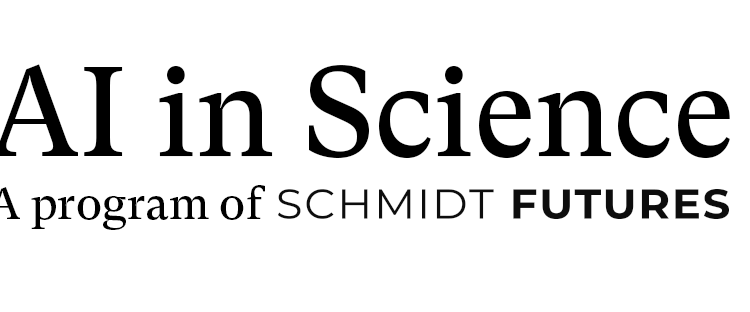
AI+Science Hackathon

